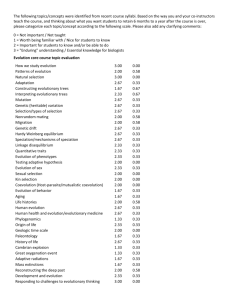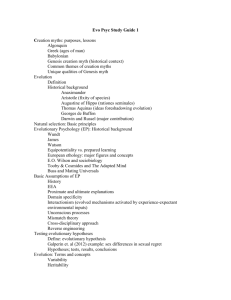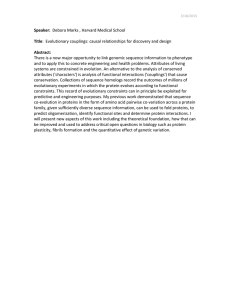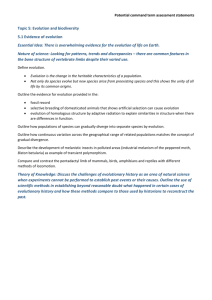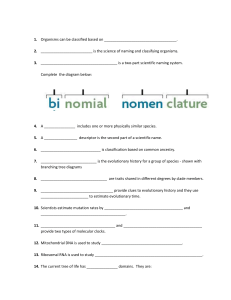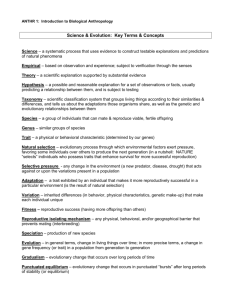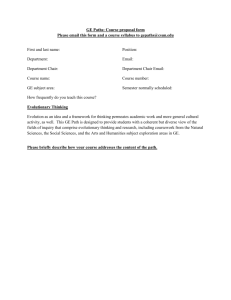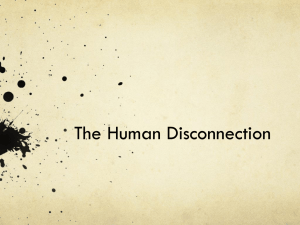File
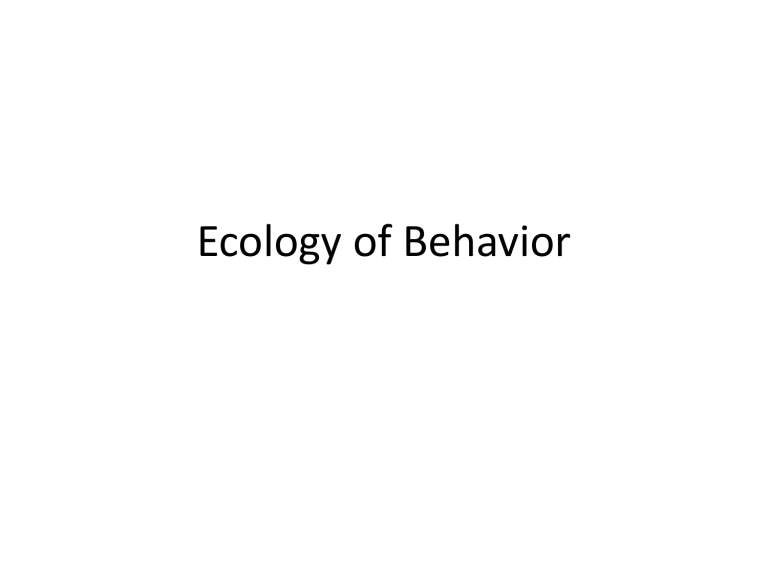
Ecology of Behavior
What is behavior?
• Everything an animal does, and how/why he does it.
• Nature vs. nurture is actually genetics vs. environment
Genetic Components of Behavior
• Behavioral ecology emphasizes evolutionary history.
– The reason a fish behaves that way is due to its ancestors
– Humans too!
• Innate behaviors are genetic (flying, migrating)
• Pheromones
– Wasps Video
5 Types of Behavior
• Kinesis
– Reaction is erratic
• Taxis
– Reaction is directional
• Migration
• Animal signals and communication
– Physical, audible, chemical, electrical
• Mating and parental behavior
Example of Animal Signaling
Types of Learning
• Habituation
• Spatial Learning
• Cognitive Maps
• Associate Learning
– Classical Conditioning
– Operant Conditioning
Example of Spatial Learning
Mating Systems
• Promiscuous
• Monogamous
• Polygamous
• Polygny
• Polyandry
The Mystery of Altruism
• Working for something that betters someone else, rather than you.
• Evolutionary benefit or reflection of our
Creator?
• “Skeptics fear that evolutionary interpretations of human behavior could be used to justify the status quo in human society, thus rationalizing current social injustices”
Discussion
“In human affairs, we often explain our behavior in terms of subjective feelings or motives or reasons; but evolutionary explanations for behavior work in terms of reproductive fitness. What is the relationship between the two kinds of explanation?
For instance, is a human explanation for behavior, such as “falling in love,” incompatible with an evolutionary explanation? Does falling in love become more meaningful or less meaningful (or neither) if it has an evolutionary basis?”


